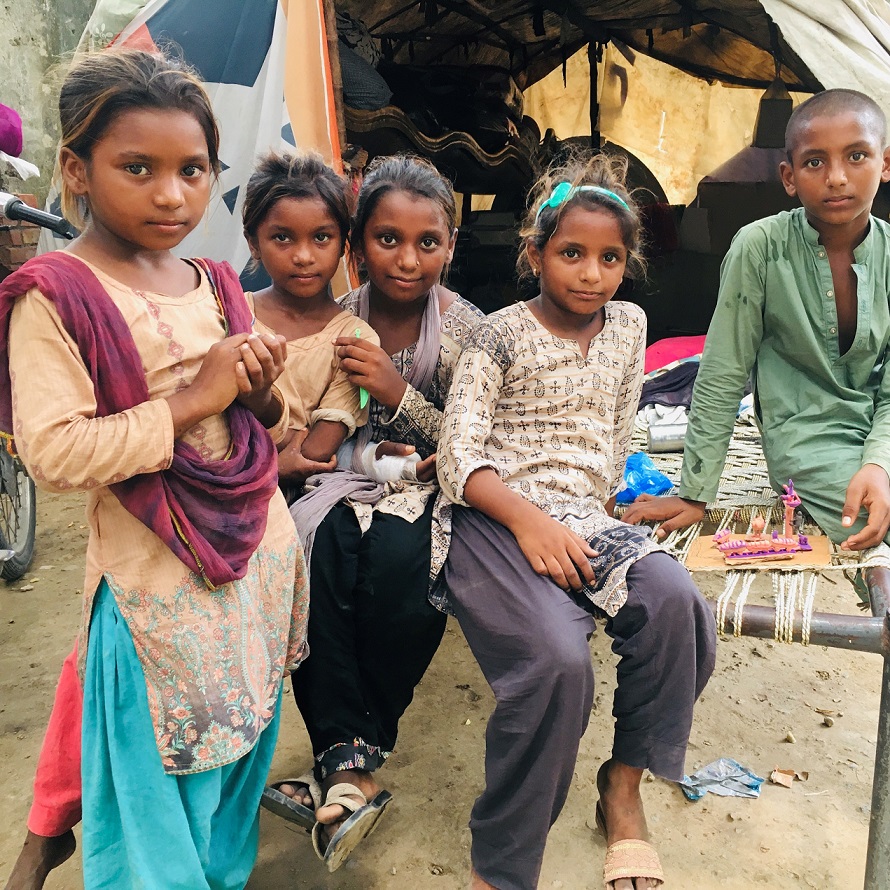14-year-old Parveen lives in a nomad settlement near Band Road, Lahore. She was born in the same tent settlement on the banks of Ravi. Her family has been living here for about 25 years. She is a teenager and looks very weak.
At the age of nine, her journey into womanhood began unexpectedly. While playing with fellow village girls on a winter day, she was taken aback by a sudden leg ache. Seeking comfort, she returned to her hut and confided in her mother about the discomfort.
Her mother reassured her that it was nothing to worry about. But as menstruation began, a wave of panic washed over her. Her mother introduced her to using cloth and advised her against consuming cold foods, bathing, or handling cold objects.
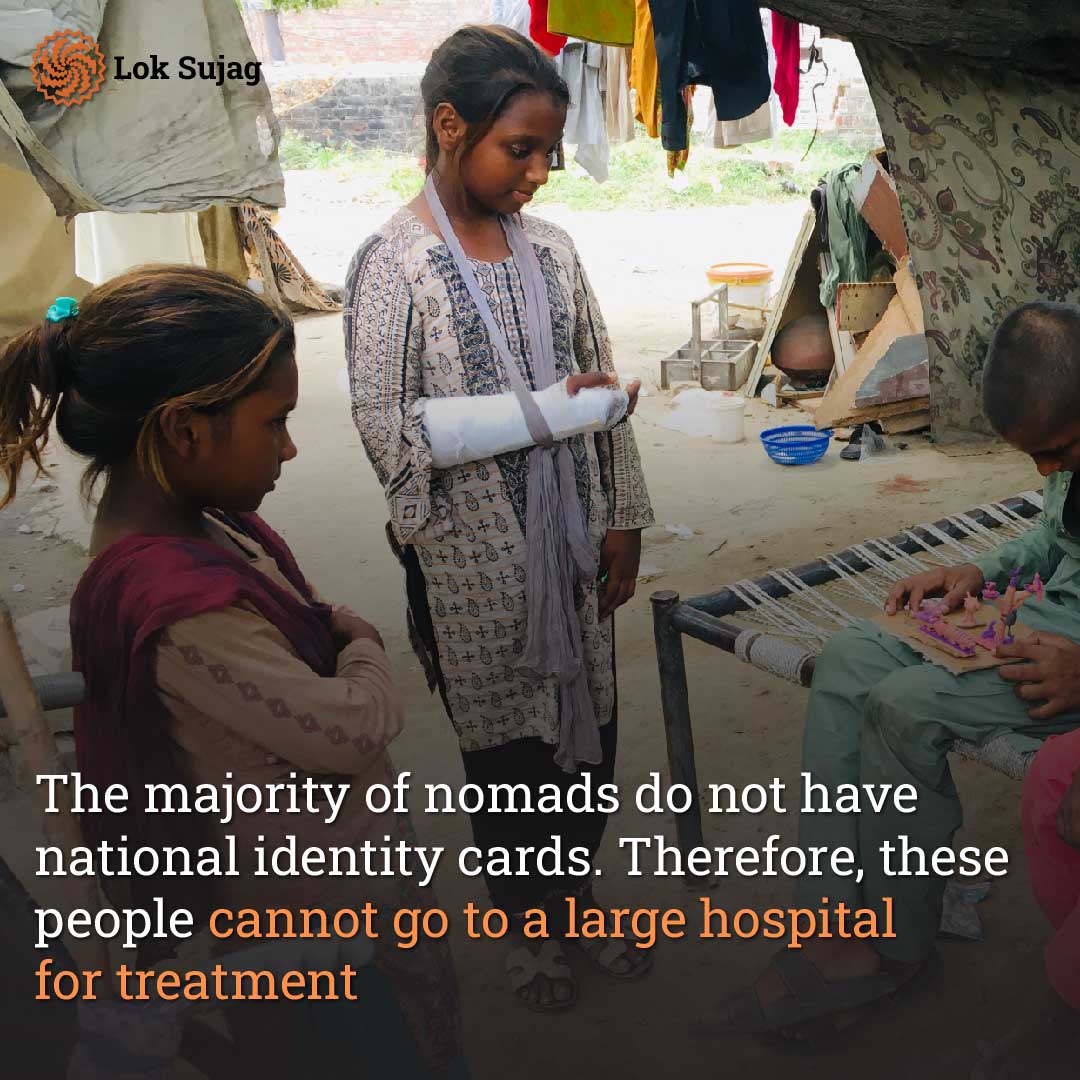
Since then, Parveen has been anaemic. She has not been taken to a doctor and is treating herself with home remedies. She has rashes on her face. She hopes that with these tips, rashes and anaemia will disappear.
Nazeer Ghazi heads the active organisation ‘Goad’, dedicated to nomads’ welfare and well-being. He explains that the women in these households consider discussing women’s health taboo, leading to various physical issues.
“They don’t have regular washrooms. Due to a lack of water, these people don’t bathe for many days. Therefore, diseases are common among these women.”
Nazir Ghazi says that most nomads do not have national identity cards. Therefore, these people cannot go to a big hospital for treatment. So, they go to local hakeems or use home remedies.
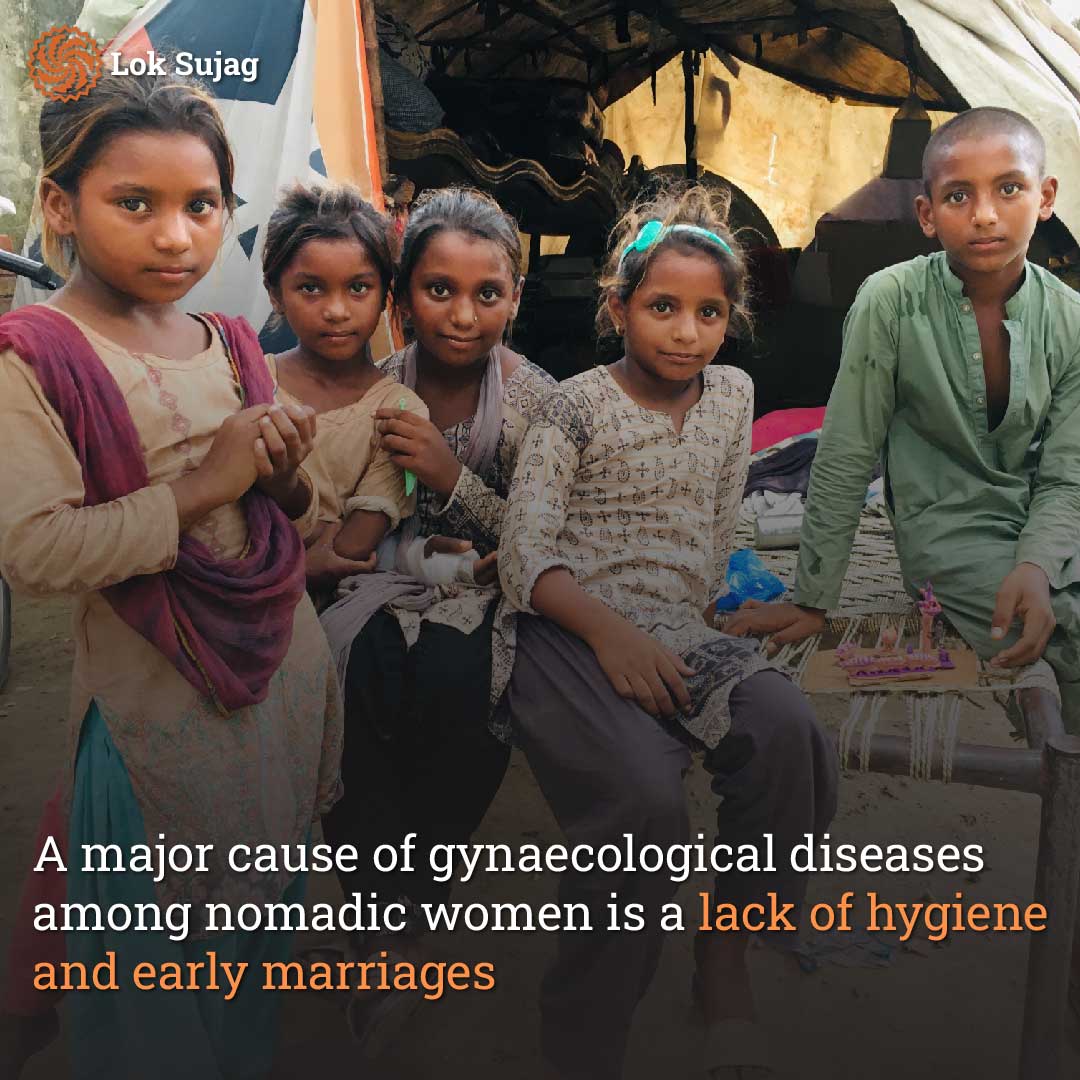
In this regard, the provincial health department spokesman says anyone can get treatment in government hospitals. Medicines are provided without discrimination. There is no separate policy for nomads or any particular community.
Social activist Aleena Azhar runs an NGO called ‘Asra’. She works for the feminine health of nomadic women and has received the Lady Diana Award.
She says that one of the major causes of gynaecological diseases among nomadic women is a lack of hygiene and early marriages. These individuals arrange marriages for their children during childhood. Girls as young as thirteen or fourteen years old are married off.
“Sexual harassment is also a reason for early marriage. Most cases of child abuse occur among nomads. Girls at home are at risk when men and women go out to beg or work.”
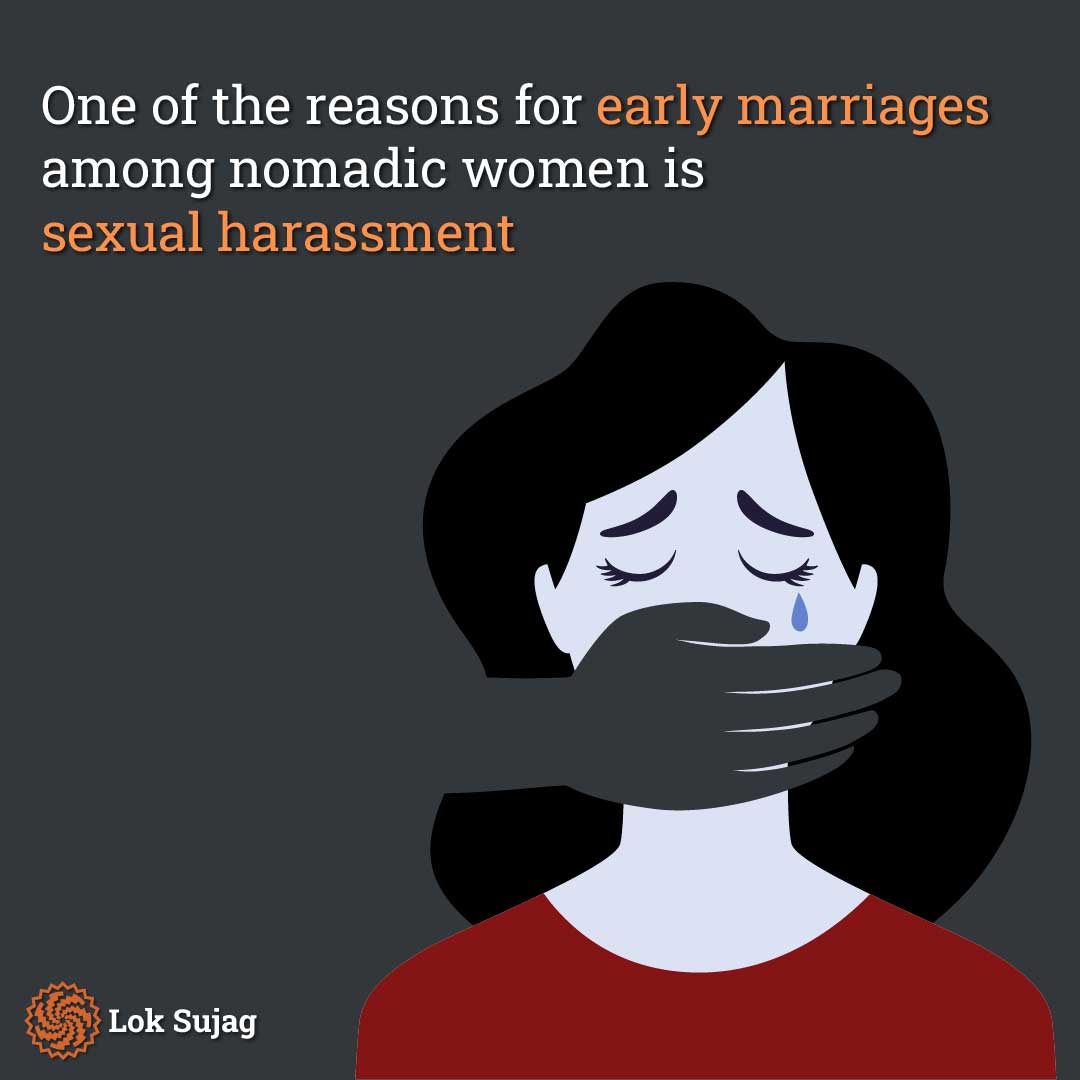
Gynecologist Dr Saima Amir says that it is normal for nomadic women to give birth to seven or eight children. Some women have more than a dozen children.
She says that the rates of gynaecological diseases are high among nomadic and rural women. If there is any major complication, these women go to the doctor; otherwise, they give birth at home.
“During menstruation, lack of caution, use of unclean clothes, and reliance on traditional remedies can lead to urinary tract infections. Some women might even be deprived of their ability to become mothers and could be at risk of kidney diseases.”
Shahida Mai, an elderly woman living in this nomadic settlement, says that her daughters do not talk to her about such problems because of shame. She herself has been using cloth for menstruation. She says that women in cities use pads, which are very expensive.
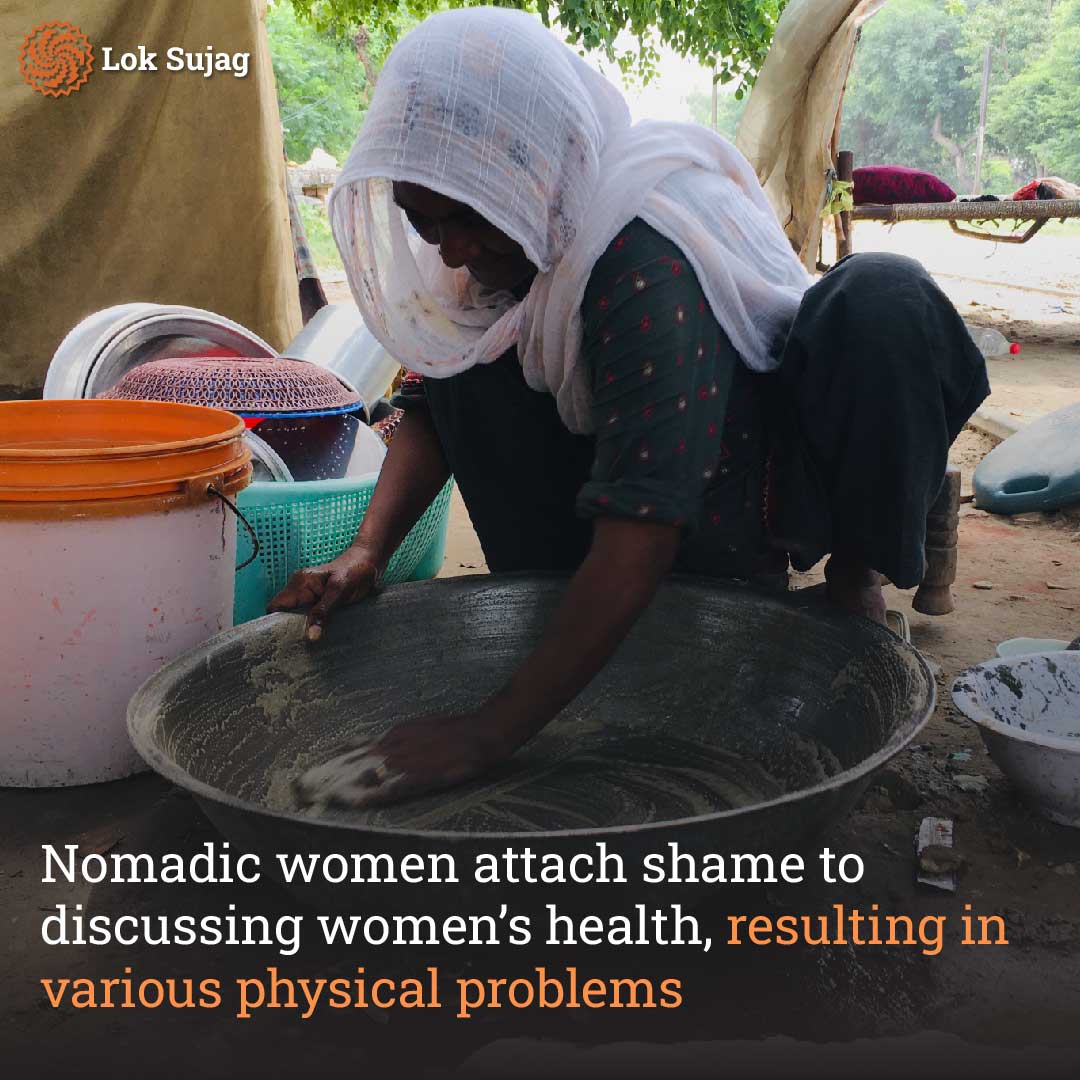
Baba Rafiq Gulberg lives in a hut along the railway line in Lahore. He claims that their women are healthier than urban women. They walk several miles every day.
“Begging is our source of livelihood. The more children in the house, the more income there will be. When children are seven to eight years old, they start ‘earning’ on their own.”
“Alina Azhar distributes sanitary pads every month among underprivileged women in various areas of Lahore, including Johar Town. She mentions that even girls still in their adolescence become mothers. Their children are quite weak and become susceptible to various illnesses after childbirth.”
Also Read
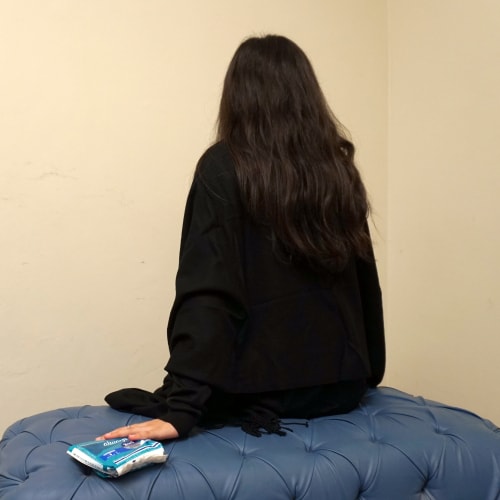
Harmful menstrual pads: Nobody talks about it openly
According to her, particularly, parents rush their daughters’ marriages, who are deemed to have good looks. Many gypsies reported that police officers and others harass those who have daughters. Some women also engage in sex work here.
The government also does not pay attention to this community. A senior official of the primary health centre in Wagah town in Lahore said on condition of anonymity that the duty of the lady health workers was to go to the kilns and nomadic settlements in their area. But this series has been stopped for four years.
According to a survey conducted in Faisalabad in 2017, 59.8 per cent of nomadic women had more than four children. The majority of them never underwent medical examination during pregnancy. 98.3 per cent of women had a normal delivery at home. Only 1.7 per cent had a C-section.
Published on 25 Aug 2023
